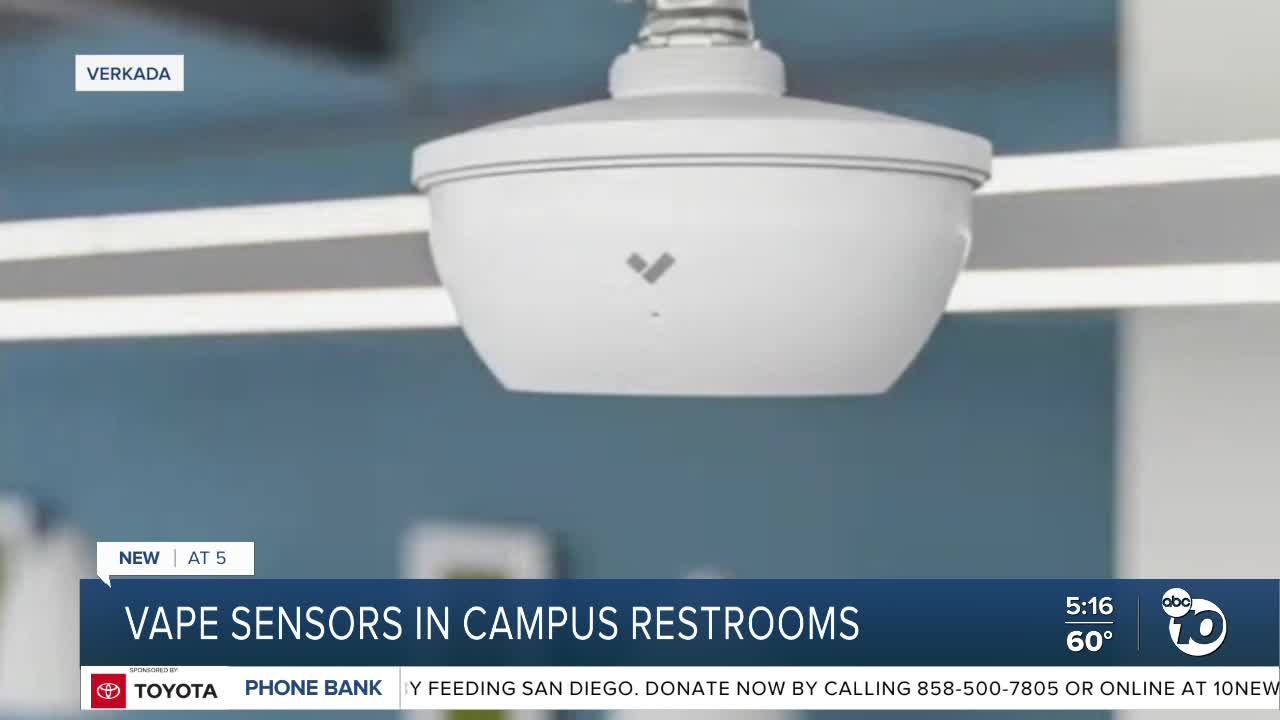ENCINITAS, Calif. (KGTV) - Parents in the San Dieguito Union High School District hope a pilot program to install sensors in school bathrooms will prevent kids from vaping in the restrooms.
Kari Prevost learned how prevalent vaping is among kids when her sixteen-year-old son got caught doing it with a group of other students at school.
"I was shocked at what I learned in terms of how many are vaping," said Prevost. ”
Prevost says she learned a lot of students started experimenting with e-cigarettes during the pandemic.
"A lot of the kids experimented especially during Covid because of boredom, a lot of the kids think they’re in control," said Prevost.
School Board Trustee Michael Allman recently introduced a resolution to use technology to try to prevent vaping in the bathrooms.
"Some parents have reported that it’s uncomfortable for their children to use the restrooms in the school, it’s a haze of exhaled vapors that has strong flavors that make it uncomfortable to use the restrooms," said Trustee Allman.
The CDC estimated 20% of middle school students have tried vaping and 40% by high school.
"What we want to do is help children who have this problem, this isn’t a way to catch someone and immediately kick them out of school," said Trustee Allman.
The board voted 3-2 to invest just over $11,000 in a pilot program to install sensors in school bathrooms. When vaping is detected a text message will be sent. Cameras placed outside the restrooms will help identify who is responsible.
Allman said there are two goals.
"To identify students who need help and to make sure that our bathrooms can be used by all students," said Allman.
Initially, the sensors will be placed in one middle school and one high school. The district hasn't said when or which schools.
The board's student representatives agree vaping is a problem, but three of them at the board's November 18th meeting spoke out against the plan to use sensors.
"I strongly believe if we spent this effort on educating people on the negative effects and harm that vaping does to people I think that could have a bigger impact rather than just having recognition software to catch people at school," said Zachary Johnson.
Other students said kids will continue to vape elsewhere on campus. They also said the cameras would create distrust among students and staff.
Prevost believes it's a good start but hopes more resources can be used to teach students about the dangers of vaping.
"You don’t want any student not being able to use a bathroom because there is a cloud of smoke in there so the school has to do something so the sensors are a great start," said Prevost.
Allman said the district hasn't decided how it will handle students who get caught vaping due to the technology.



